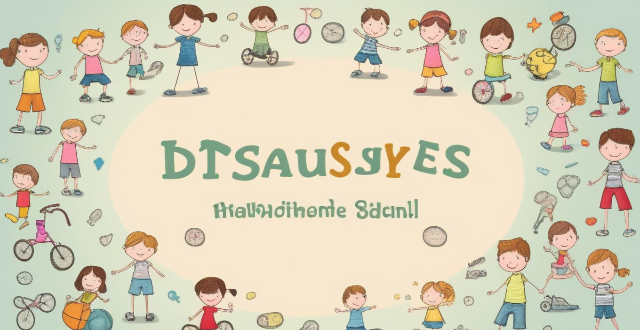The article discusses the various ways in which sports contribute to the overall personality development of children. Sports ensure physical health and well-being, teach valuable life skills such as teamwork, leadership, communication, and goal setting, impact emotional development by boosting self-esteem, teaching resilience, and handling pressure, provide opportunities for socialization, and play a crucial role in moral development by instilling values such as integrity, respect, and responsibility. The author concludes that sports are not just about physical fitness but are powerful tools for character building in children.

The Role of Sports in Character Building for Children
Sports have always been considered an essential aspect of a child's development. They not only help in physical growth but also play a significant role in character building. Let's delve into the various ways sports contribute to the overall personality development of children.
Physical Health and Well-being
First and foremost, sports ensure that children remain physically active, which is crucial for their overall health and well-being. Regular exercise through sports helps in maintaining a healthy weight, strengthening muscles and bones, and improving cardiovascular health. Moreover, it promotes better sleep patterns and reduces the risk of chronic diseases later in life.
Development of Life Skills
Sports provide an excellent platform for children to learn valuable life skills such as:
- Teamwork: Sports teach children how to work together towards a common goal, fostering a sense of camaraderie and mutual respect among team members.
- Leadership: Through sports, children get opportunities to take charge and lead their teams, developing leadership qualities that will benefit them in their personal and professional lives.
- Communication: Sports require effective communication among players, helping children develop strong verbal and non-verbal communication skills.
- Goal Setting: Athletes learn to set achievable goals and work diligently to achieve them, a skill that translates well into other areas of life.
Emotional Development
Participating in sports can significantly impact a child's emotional development by:
- Boosting Self-esteem: Success in sports can boost a child's self-confidence, making them feel proud of their accomplishments and more confident in their abilities.
- Learning to Handle Pressure: Sports competitions often come with pressure situations, teaching children how to manage stress and perform under pressure.
- Developing Resilience: Sports teach children to face challenges head-on and bounce back from setbacks, fostering resilience that will serve them well throughout their lives.
Socialization
Sports provide numerous opportunities for socialization, allowing children to:
- Make Friends: Through shared experiences on the field or court, children form lasting friendships based on common interests and experiences.
- Learn Social Norms: Sports environments are miniature societies where children learn about rules, etiquette, and fair play.
- Understand Diversity: Participating in sports often means interacting with people from different backgrounds, promoting acceptance and understanding of diversity.
Moral Development
Finally, sports play a crucial role in shaping a child's moral compass by instilling values such as:
- Integrity: Sports teach children the importance of honesty and fair play.
- Respect: By respecting opponents, teammates, coaches, and officials, children learn the value of treating others with dignity and consideration.
- Responsibility: Athletes are held accountable for their actions on and off the field, teaching them about personal responsibility.
In conclusion, sports are not just about physical fitness; they are powerful tools for character building in children. By encouraging participation in sports from a young age, we can help children develop into well-rounded individuals equipped with essential life skills, strong moral values, and a healthy lifestyle.